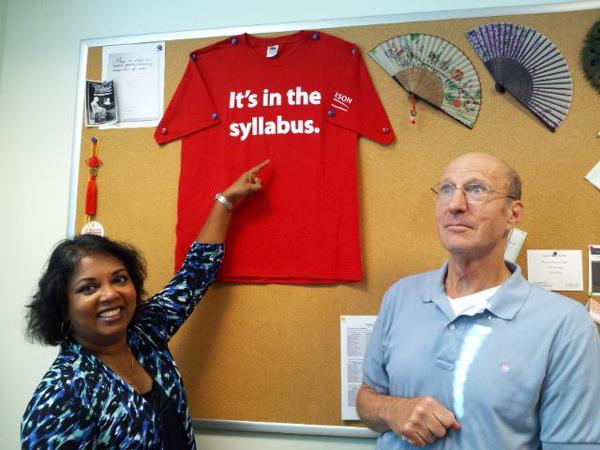Concerned professors are offering remedial math courses for students struggling in economics courses.
University officials, including those in the office of retention, and faculty in the economics department are working together to assess students’ math proficiency. Students who struggle with basic math can now enroll in an introductory math course before taking microeconomics.
Oliver Street, the director of retention, said at a December Faculty Senate meeting that he is working with officials to help students struggling with math as part of an effort to increase retention that was announced in November. Street said the math and economics departments want to identify course-related retention issues, meaning students leaving the University because they cannot complete fundamental courses.
Officials were considering moving the algebra pre-test for the introductory Economics 1011 course to before the beginning of a semester so students are not “waiting around” weeks into the semester, Street said. Students must past the pre-test to remain in the introductory microeconomics course.
“If they are not ready then they can do remediation before the semester starts and be able to hit the ground running the first day of classes,” Street said. “That exam allows students who need additional support and assistance to get it before the semester starts so that they do not struggle when they are actually in the course.”
Street said he hopes to reduce the drop, withdrawal and fail rates in required math courses. Current efforts to help students with math originated in the economics department.
Officials say that the number of students unable to pass the algebra pre-test for Economics 1011, a course which about 1,500 of 2,500 incoming students must take, has increased in recent years. Faculty in the economics department who noticed this issue about six years ago added the pre-tests to assess students’ skill levels.
Irene Foster, a professor of economics who teaches three sections of Econ 1011 each fall and spring, said in 2014 she proposed a class designed to help students who failed pass the microeconomics pre-tests by bolstering foundational math skills for economics but did not have funding from the University to add the class. She began teaching the new course, called Principles of Mathematics for Economics, with graduate teaching assistants in the fall.
Foster said 300 students were automatically enrolled in the principles of math class after they failed to reach passing scores on at least two of the math pre-tests for microeconomics at the beginning of the fall semester.
“For next year, we are working with the University to come up with a plan to get students to do something to prepare ahead of time,” she said. Foster said she cannot yet comment on the details of the new program because they have yet to be finalized.
When Foster came to GW in 2010, she was concerned students were ill-prepared for the math required in introductory microeconomics, she said. The next fall, Foster and Anthony Yezer, a professor of economics, gave microeconomics students an assessment at the start of the course to get a sense of students’ math skills without grade penalties.
Based on the results of the assessment, Foster said she decided to permanently give the pre-test. Students were originally allowed three attempts to pass the pre-test before having to take an online remedial math course called ALEKS, administered by McGraw-Hill Education, she said. Now students only have two attempts to pass the pretest before being automatically enrolled in the principles of math for economics course.
Yezer, who helped design and teach the principles of math for economics course, said in an email that this level of preparation is not unique to GW and that he and Foster have talked with faculty at other universities about the issue.
Next fall, course expectations and online learning resources for math will be made available to students earlier in the summer, and students will have just one chance in the fall to pass the algebra pre-test before needing to enroll in the principles of math for economics course, Yezer said.
“Students will be informed of the placement examination and given advance study materials at CI in June rather than at the start of August when Blackboard access is available,” he said.
Steven Suranovic, a professor of economics, said the new principles of math course allows professors to help students before they face negative consequences.
“The idea of this course allows us to give more direct intervention to help students that are struggling,” Suranovic said. “The alternative is you struggle through it, you get a two-step grade reduction, it affects your GPA and it can also greatly impact your confidence as a student.”
Liz Konneker contributed to reporting.





